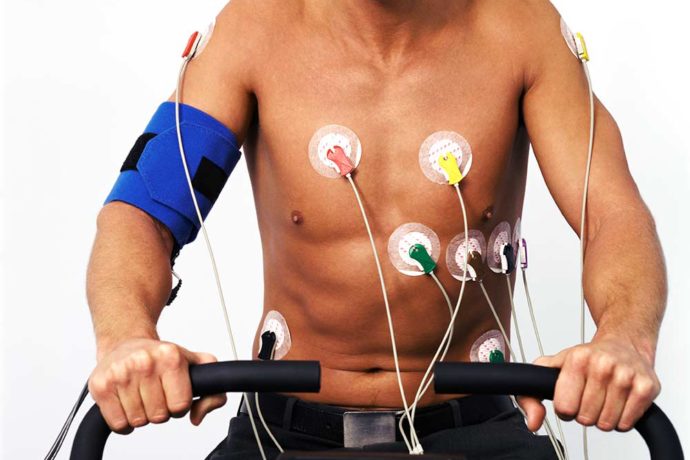Stress testing helps our doctors diagnose how a patient’s heart is functioning. A stress test may be used to diagnose the extent of coronary artery disease (CAD), predict risk of heart disease, determine the cause of chest pain or shortness of breath, evaluate appropriate levels of exercise or monitor the effectiveness of previous treatments. It is an excellent modality to monitor the physical stress of exercise. There are multiple types of stress tests, but all require patients to be moving in order to determine whether your blood is flowing to your heart efficiently during exertion.
Standard exercise stress tests are performed on-site. At NYMA, all tests are supervised by a physician and the results are immediate. The stress test measures the blood flow to your heart while your body is in motion. During an exercise stress test the patient walks on a treadmill at a carefully monitored speed and incline. As the patient walks on the treadmill, their breathing, blood pressure, and electrical activity of the heart is measured. An ECG will be used to monitor the electrical activity of your heart while you are exercising, which means you will wearing painless electrodes on your skin while exercising. During the test, you will continue to exercise until you reach a point of exhaustion. It is normal and expected that your blood pressure, heart rate and respiratory rate will increase during the exercise. While you are exercising we will also be asking you how you are feeling. If at any point you feel dizzy, lightheaded or any discomfort in the chest or neck you should say something. We can stop the test immediately, if we notice any issues on the ECG monitor.
This treadmill test can be performed with or without imaging. Imaging stress tests allow for a more precise understanding of the heart’s functioning. During an imaging stress test either radioactive dyes or an echocardiography enables your doctor to have additional visual information from which to evaluate the heart functioning. At NYMA we feel that the stress echocardiogram typically is the most efficient test combining a high degree of accuracy, immediate results, and is without any radiation risk.
 Click to Call
Click to Call

